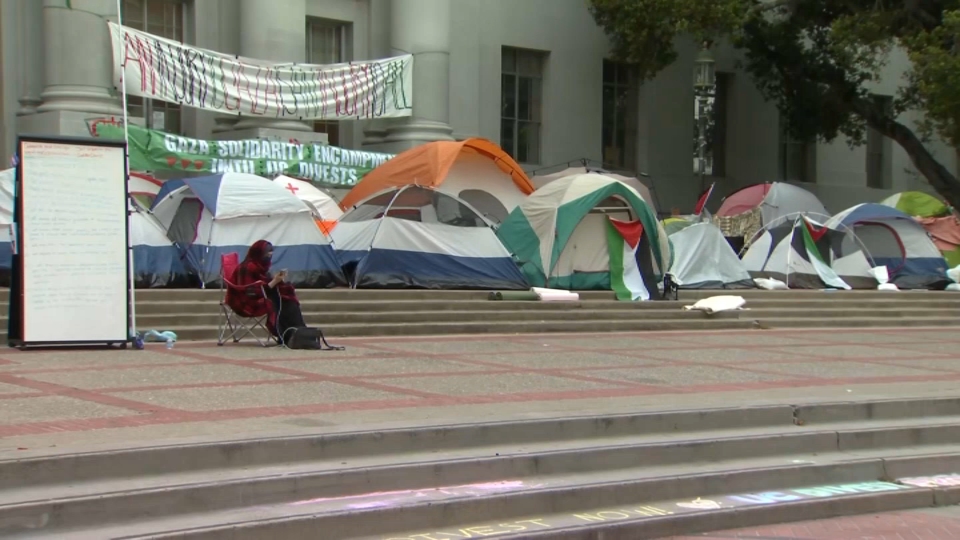A strike in which both sides have accused the other of unfair labor practices, bringing municipal services to a grinding halt in Oakland, entered its fourth consecutive day on Friday and brought with it a protest.
Thousands of non-emergency workers were off the job once again, pushing for higher wages and improved working conditions.
Hundreds of people took to the streets, circling the 14th Street and Broadway intersection and blocking traffic. Of the plethora of signs bobbing in the crowd, some read "Stop the abuse of part-time Oakland workers," "High rent low pay is not OK!" and "Unfair labor practice on strike."
A former city could member told protesters that civil disobedience is necessary to get the attention of Oakland's leaders and its residents.
Others marched, chanting, "Oakland is a union town! Rise up! Shut it down!"
Mayor Libby Schaaf said minutes before the 11:30 a.m. protest that city officials are nearing an impasse, echoing her earlier message that the city doesn't have the money to raise salaries. Workers argue that the city lacks the necessary funding because developers are getting tax breaks.
"We cannot spend money that we do not have," Schaaf said in a statement on Wednesday. "We need to consider not just the revenues we know about over the next two years, but what our financial outlook will be over the long run."
Local
Oakland leaders say they've already made their "last, best final offer, while labor leaders from unions representing 3,000 striking city workers say officials made "no significant movement to advance contract talks."
The labor leaders with Service Employees International Union Local 1021 and International Federation of Professional and Technical Engineers Local 21 said they're still waiting on city officials to make a "real offer to bring the parties back to the table."
During Thursday's protest, union representatives declared that they are not at an impasse, despite what the city says. Union leaders continued to say they are willing to bargain, especially on wages, and are accusing the city of unfair practices.
"We're looking to try and stay above these rising costs," said Lina Hernandez, a part-time employee. "And we could just barely do that with this contract."
So far, they've declined to move forward with a 4 percent wage increase being offered by the city, retroactively applied to July 1. That offer could also include a second 2 percent wage increase in June 2019, depending on growth in city revenue.
"The offer we have made to (the unions) is both fair and responsible to both our workers and to the public," said Mayor Libby Schaaf.
That offer would cost Oakland an extra $21.87 million over two years, or $22.11 million if revenue growth triggers the 2 percent wage increase in 2019, according to Oakland's Finance Department.
Oakland officials say they're risking the creation of a $6.96 million deficit with that offer, and that measures taken to offset that deficit could adversely affect the city's credit rating.
Meanwhile, labor leaders say that understaffing, high turnover and positions being left open are leading to health and safety issues for the Oakland community associated with illegal dumping as well as mandatory overtime for emergency dispatchers.
Union workers also take issue with what they describe as the overuse of part-time workers, particularly in the libraries and the Parks and Recreation Department, where they say staffers go without benefits or common worker protections against problems like sexual harassment in the workplace.
According to the city, the union can enter into what is called a "fact-finding" phase, which can drag the strike out for another five to eight months. The city is looking into making plans to start restoring services if workers continue to stay out on strike next week.
Check back for updates.



